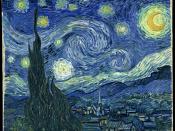Bipolar Disease
Bipolar Disorder is a mental illness in which a person's mood changes between extreme enthusiasm and depression. Bipolar disorder is also called manic-depressive illness. When manic, people with bipolar disorder feel intensely overjoyed, self-important, energetic, and irritable. When depressed, they experience painful sadness, negative thinking, and lack of interest to things that used to bring them happiness.
SIGNS:
*Increased energy, activity, and restlessness
*Excessively "high," overly good, euphoric mood
*Extreme irritability
*Racing thoughts and talking very fast, jumping from one idea to another
*Distractibility, can't concentrate well
WHAT CAUSES BIPOLAR?
Most scientists now agree that there is no single cause for bipolar disorder--rather, many factors act together to produce the illness.
Because bipolar disorder tends to run in families, researchers have been searching for specific genes passed down through generations that may increase a person's chance of developing the illness. But genes are not the whole story. Studies of identical twins, who share all the same genes, indicate that both genes and other factors play a role in bipolar disorder.
If bipolar disorder were caused entirely by genes, then the identical twin of someone with the illness would always develop the illness, and research has shown that this is not the case. But if one twin has bipolar disorder, the other twin is more likely to develop the illness than is another sibling.
In addition, findings from gene research suggest that bipolar disorder, like other mental illnesses, does not occur because of a single gene.8 It appears likely that many different genes act together, and in combination with other factors of the person or the person's environment, to cause bipolar disorder. Finding these genes, each of which contributes only a small amount toward the vulnerability to bipolar disorder, has been extremely difficult.
TREATMENT?
Most people with bipolar disorder--even...



Uh its ok
this essay is ok it may need some finishing but its ok. more information would be required but its good for a begginer and some one who needs more information.
2 out of 2 people found this comment useful.